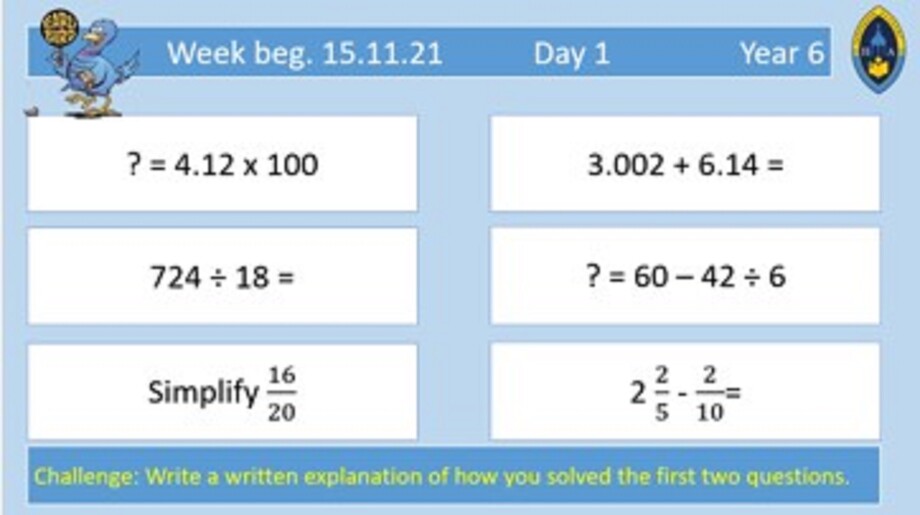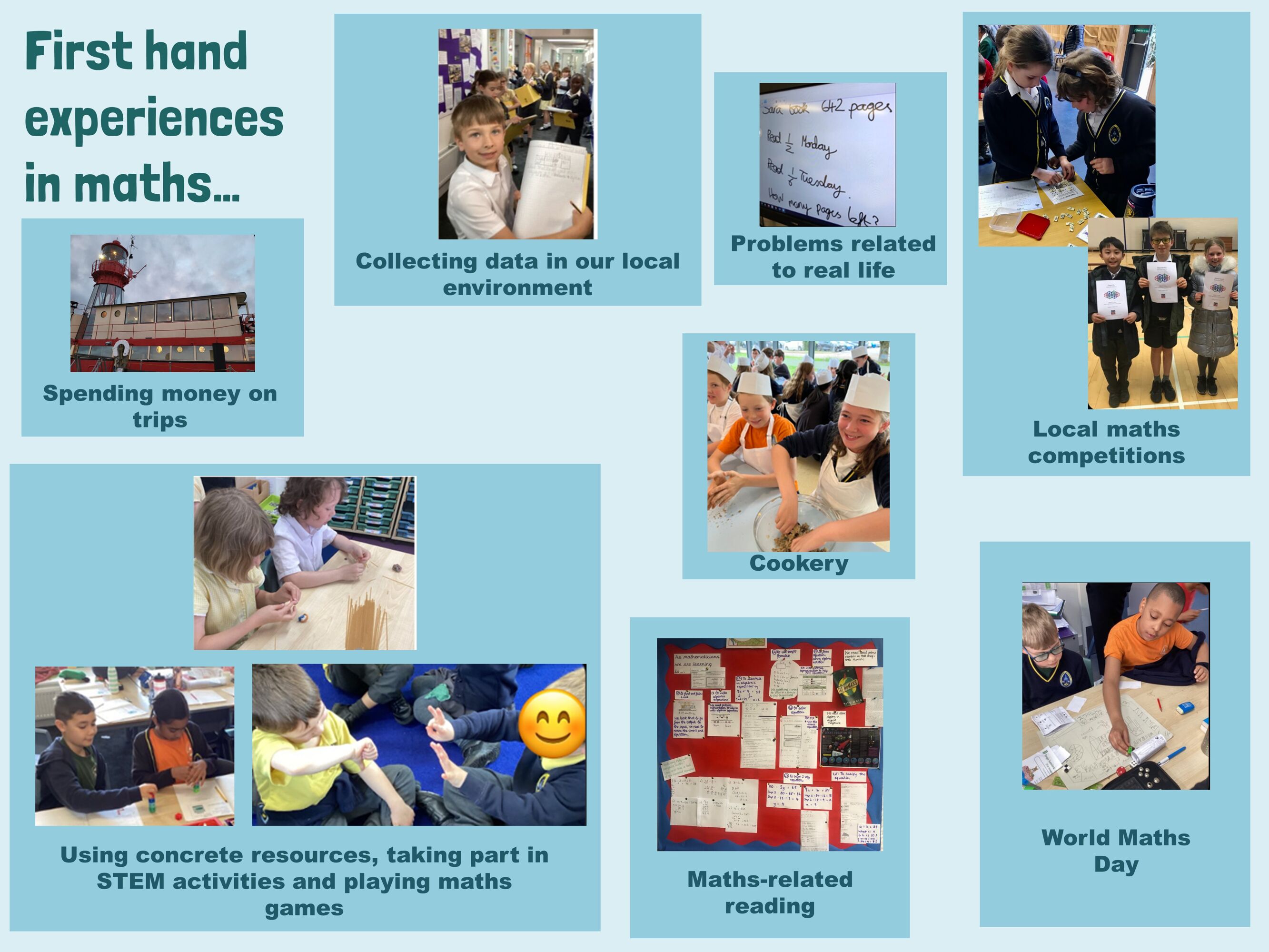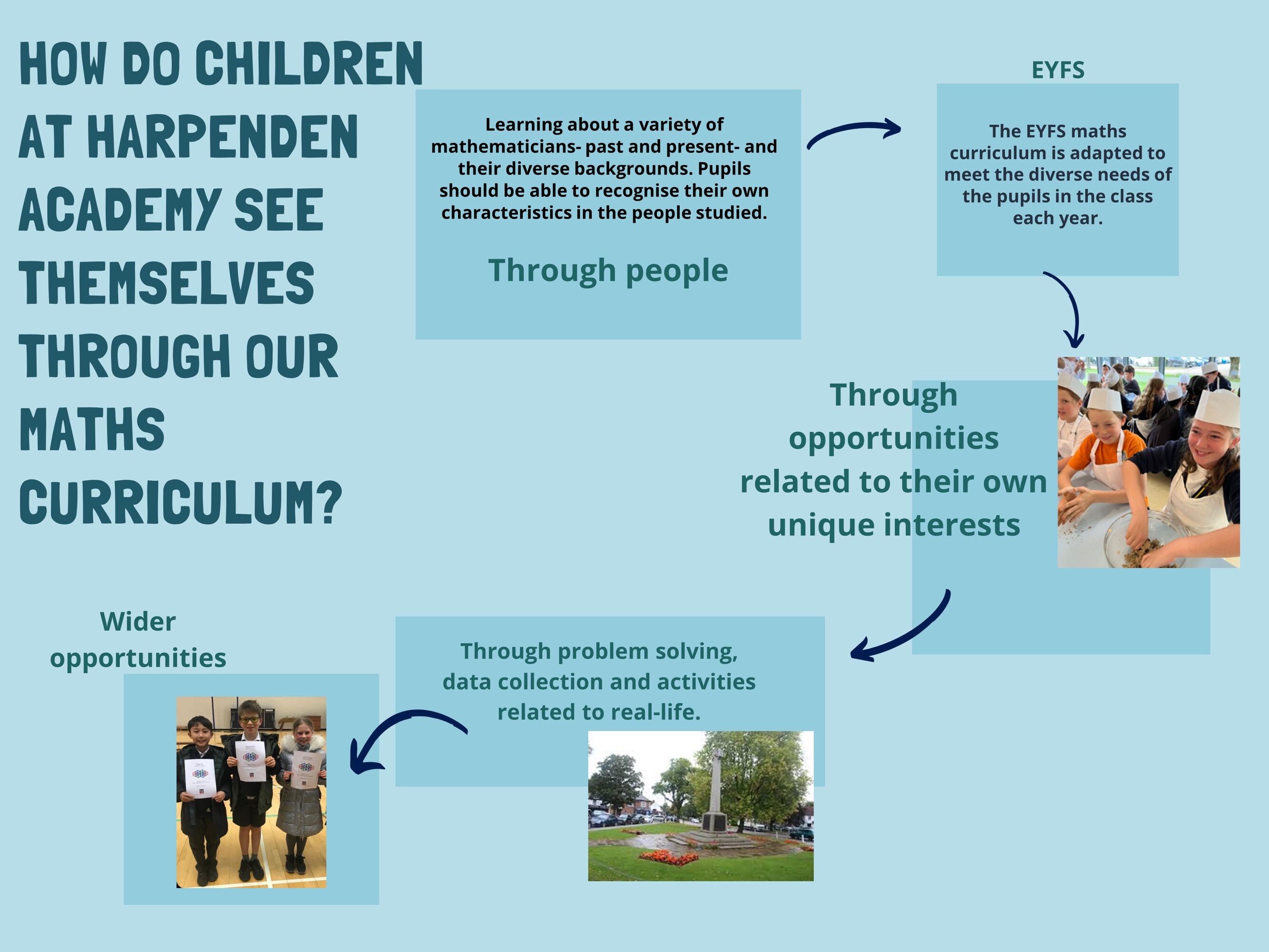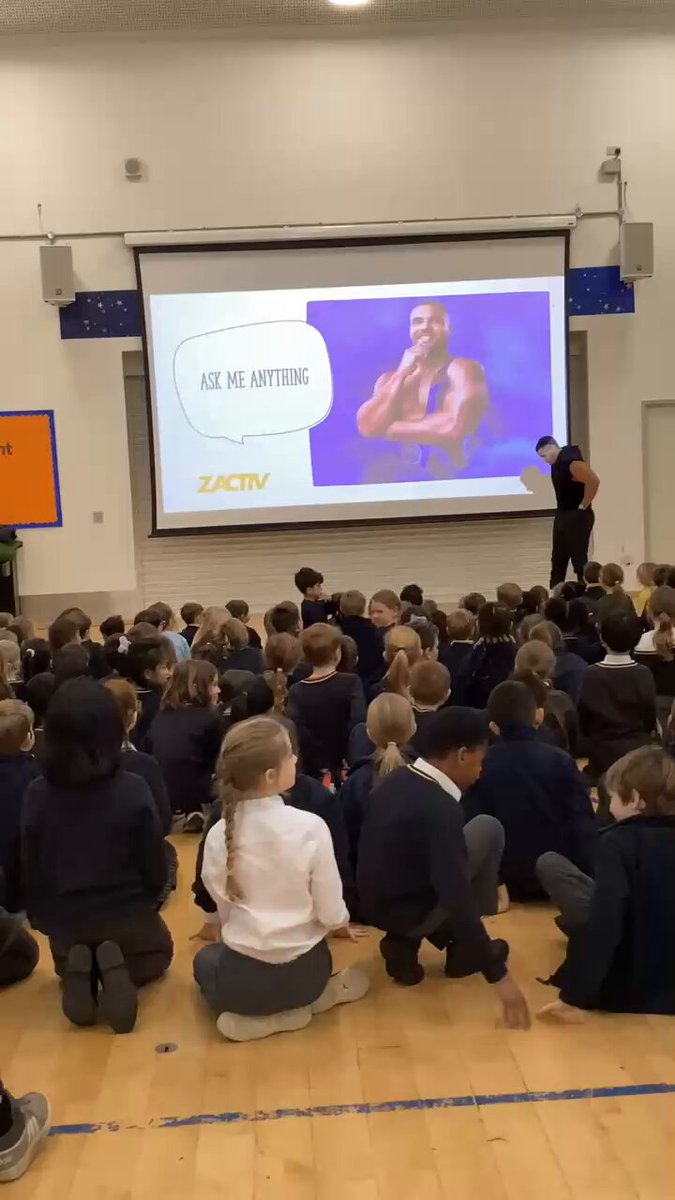Mathematics
Purpose and Aims
"The leadership of English and mathematics is strong. Leaders have excellent knowledge and understanding of these subjects. They have taken a wide range of suitable actions that have had a positive impact on improving the quality of teaching and outcomes in the school."
Ofsted School Report, June 2019
Purpose
Mathematics is a creative and highly inter-connected discipline that has been developed over centuries, providing the solution to some of history’s most intriguing problems. It is essential to everyday life, critical to science, technology and engineering, and necessary for financial literacy and most forms of employment. A high-quality mathematics education therefore provides a foundation for understanding the world, the ability to reason, an appreciation of the beauty and power of mathematics, and a sense of enjoyment and curiosity about the subject. It allows children to gain resilience and develop a range of strategies to solve problems set before them, drawing on previous knowledge and applying this knowledge to support solving a range of problems.
Aims
We are committed to supporting all children at Harpenden Academy:
- To develop a love of maths and an understanding that everyone can be successful in maths.
- To become fluent in the fundamentals of mathematics, including through varied and frequent practice with increasingly complex problems over time, so that pupils develop conceptual understanding and the ability to recall and apply knowledge rapidly and accurately.
- To reason mathematically by following a line of enquiry, conjecturing relationships and generalisations, and developing an argument, justification or proof using mathematical language.
- To solve problems by applying their mathematics to a variety of routine and non-routine problems with increasing sophistication, including breaking down problems into a series of simpler steps and persevering in seeking solutions. Pupils are able to see connections between mathematical concepts to support their problem solving and can verbalise these findings.
Harpenden Academy Maths Curriculum
At Harpenden Academy, we follow a mastery approach in the teaching and learning of mathematics, which is inspired by teaching practices in South Asia. We use the White Rose Maths scheme.
The principles underpinning mastery:
- Go slow to go fast- concepts are built in small, logical steps and are explored through clear mathematical models and images
- Go deep to build firm foundations- depth is simplicity, not complexity, so it is accessible for all
- Whole class teaching- to maximise teaching input with adaptive teaching to meet the needs of all children
In order to develop mastery in mathematics, children at Harpenden Academy are taught in a way that enables them to develop fluency, which they are then able to apply to reason and problem solve.
Fluency in mathematics is about developing number sense and being able to choose the most appropriate method for the task at hand. If children are fluent, they should be able to apply a skill to multiple contexts. Fluency is developed through the concrete, pictorial, abstract approach.

At Harpenden Academy, children take part in Early Bird Maths sessions in order to develop their fluency. This involves an extra 15-minute maths session at least three mornings per week. No new concepts are introduced during this time. Instead, it allows children to recap prior learning related to key areas of maths including: number, written and mental methods for the four operations, fractions, times tables and number bonds.

Reasoning is the process of applying logical and critical thinking to a mathematical problem in order to work out the correct strategy to use.
Problem solving is about finding a way to apply knowledge and skills to answer unfamiliar types of problems, including those with real-world contexts. Problem solving develops skills including: following a line of enquiry; asking questions; representing and communicating; planning and implementing an approach; making connections; evaluating; generalising and justifying.
Assessment and reporting
After every unit of work, children at Harpenden Academy complete a short assessment. This enables teachers to identify further needs within the class, which can then be addressed through further whole-class lessons, Early Bird Maths or, in some cases, an intervention for a small group of pupils. At the end of every term, children from years 1-6 complete two assessment papers: an arithmetic paper and a reasoning paper. This enables teachers to report on the progress pupils are making, identify areas of need within the class and ensure that all children are on track to meet curriculum expectations. We believe that through short, regular, low-stakes assessment, our children develop the skills and confidence they need for future testing, including the SATs at the end of KS2. The mathematics subject leader is responsible for monitoring and analysing data at the end of each term to audit teacher judgements and provide support as needed.
Oracy
First Hand Experiences

Belonging




























